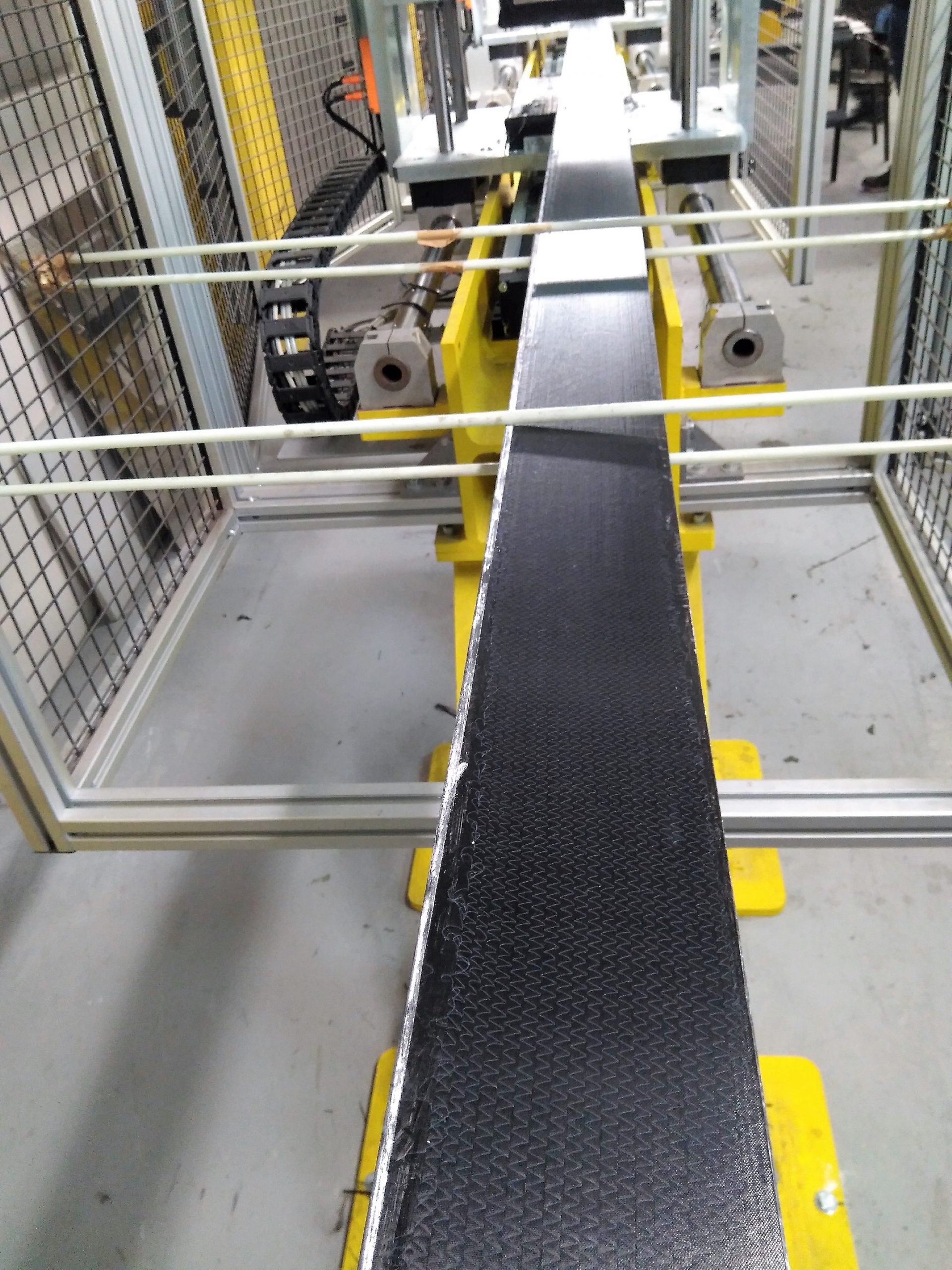The validation tests plan to reach a TRL3 level has provided information on the mechanical and physical-thermal properties of the selected materials, as well as the pultrusion manufacturing process itself after a microstructural analysis with non-destructive testing techniques (NDT), as ultrasonics. These tests have made it possible to fine-tune the pultrusion technique before proceeding to manufacture more complex geometries, which will already be part of a third stage of Pultrubeam.
One of the objectives of the project is to achieve the manufacture of composite material through the pultrusion technique without depending on an autoclave. As result it will be possibe to save costs and the optimization of the production process. Although this is a manufacturing technique that is applicable to different sectors, it will be in aeronautics, rail and automobile where will achieve a greatest impact, facilitating access to this innovative technology to companies from different industrial areas.


